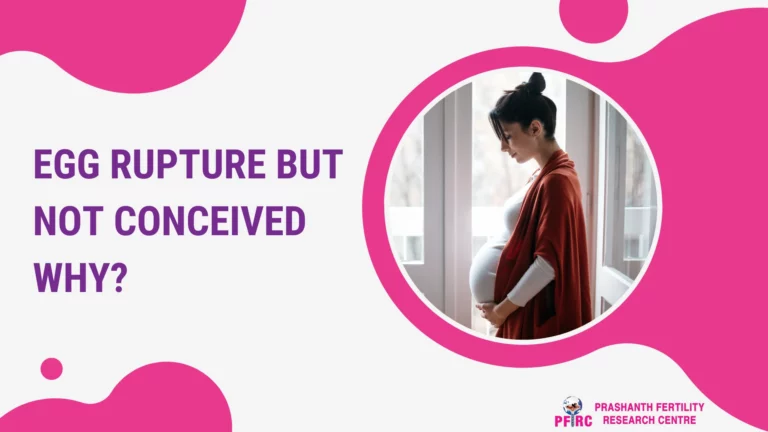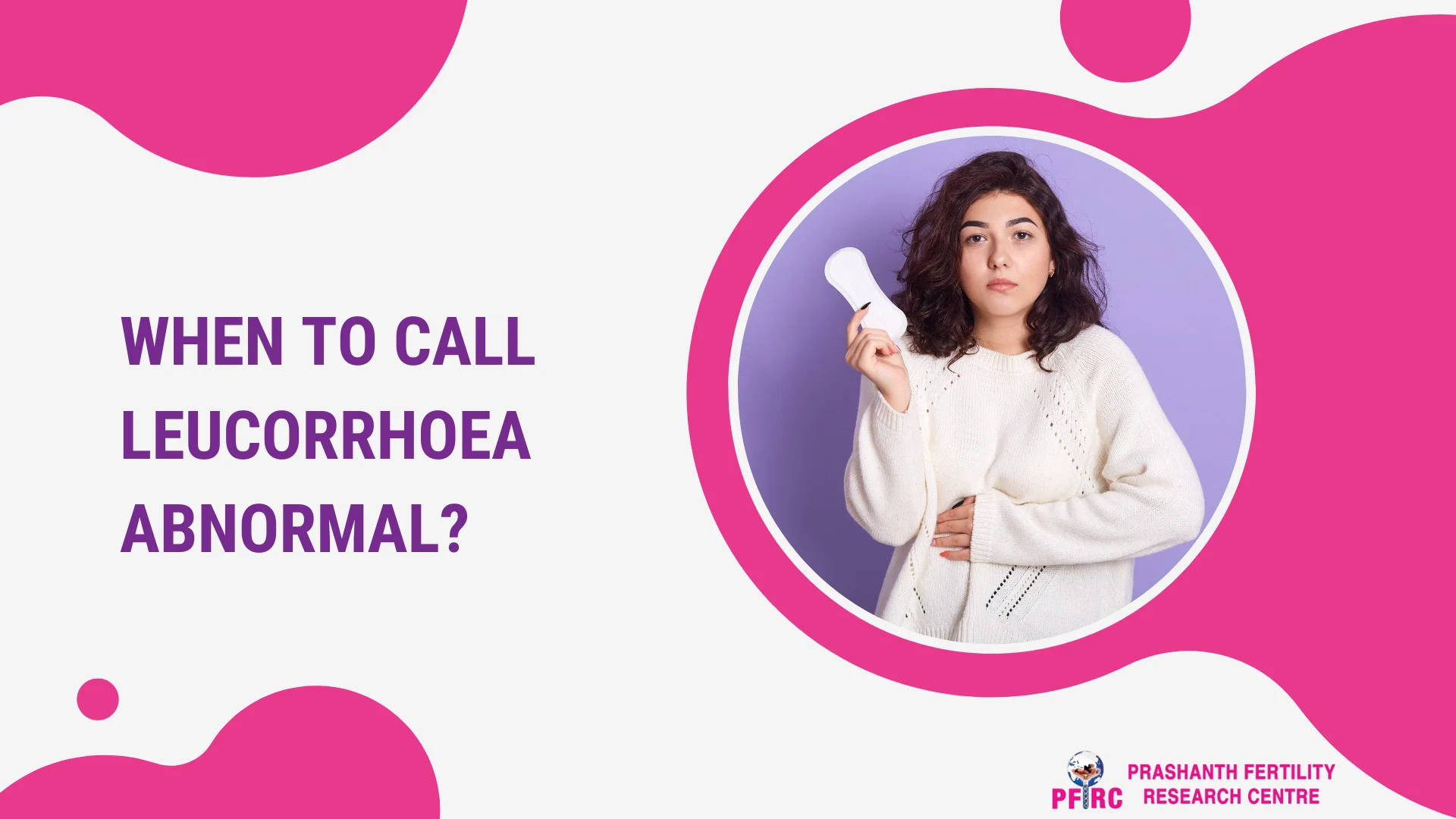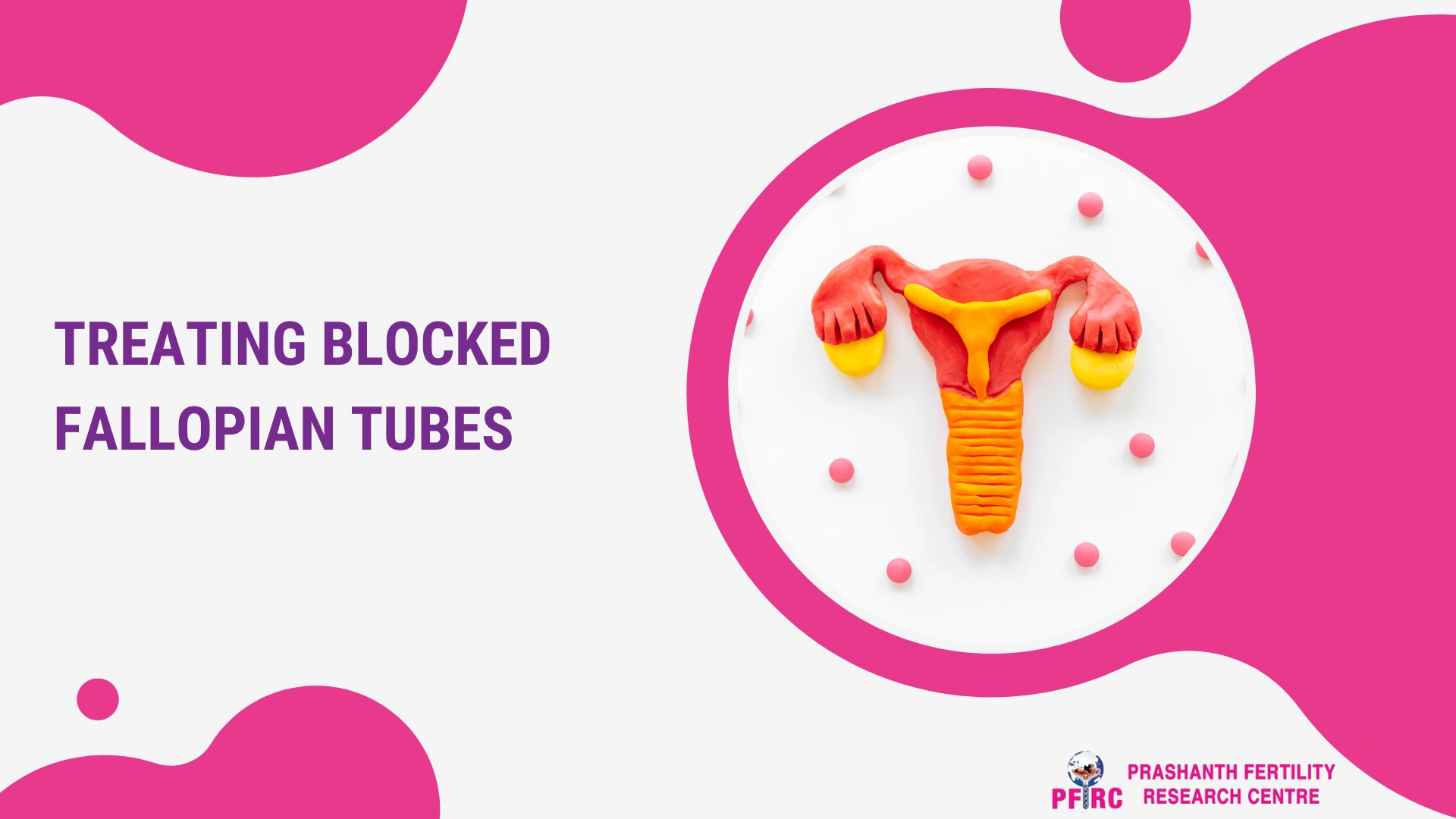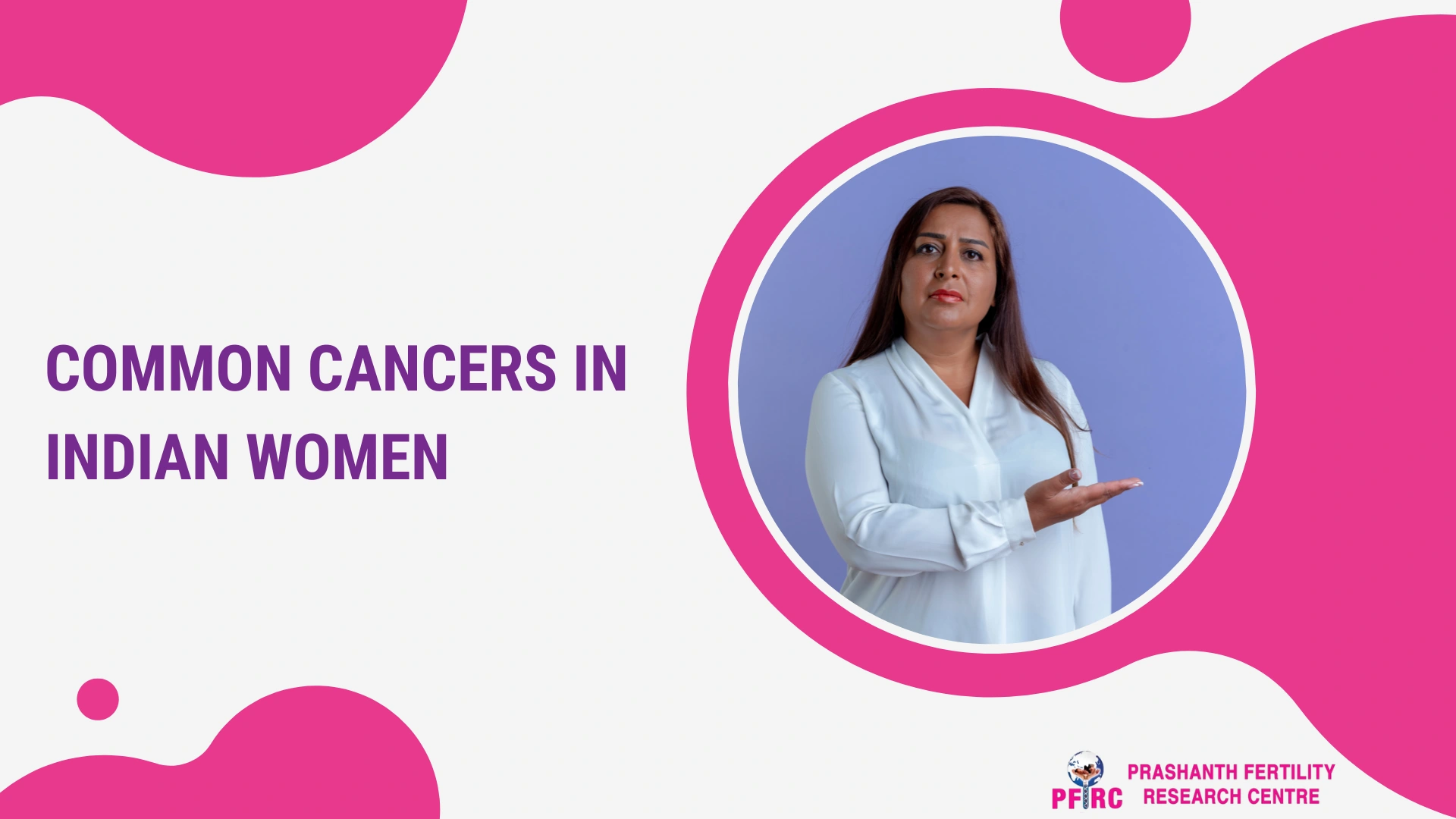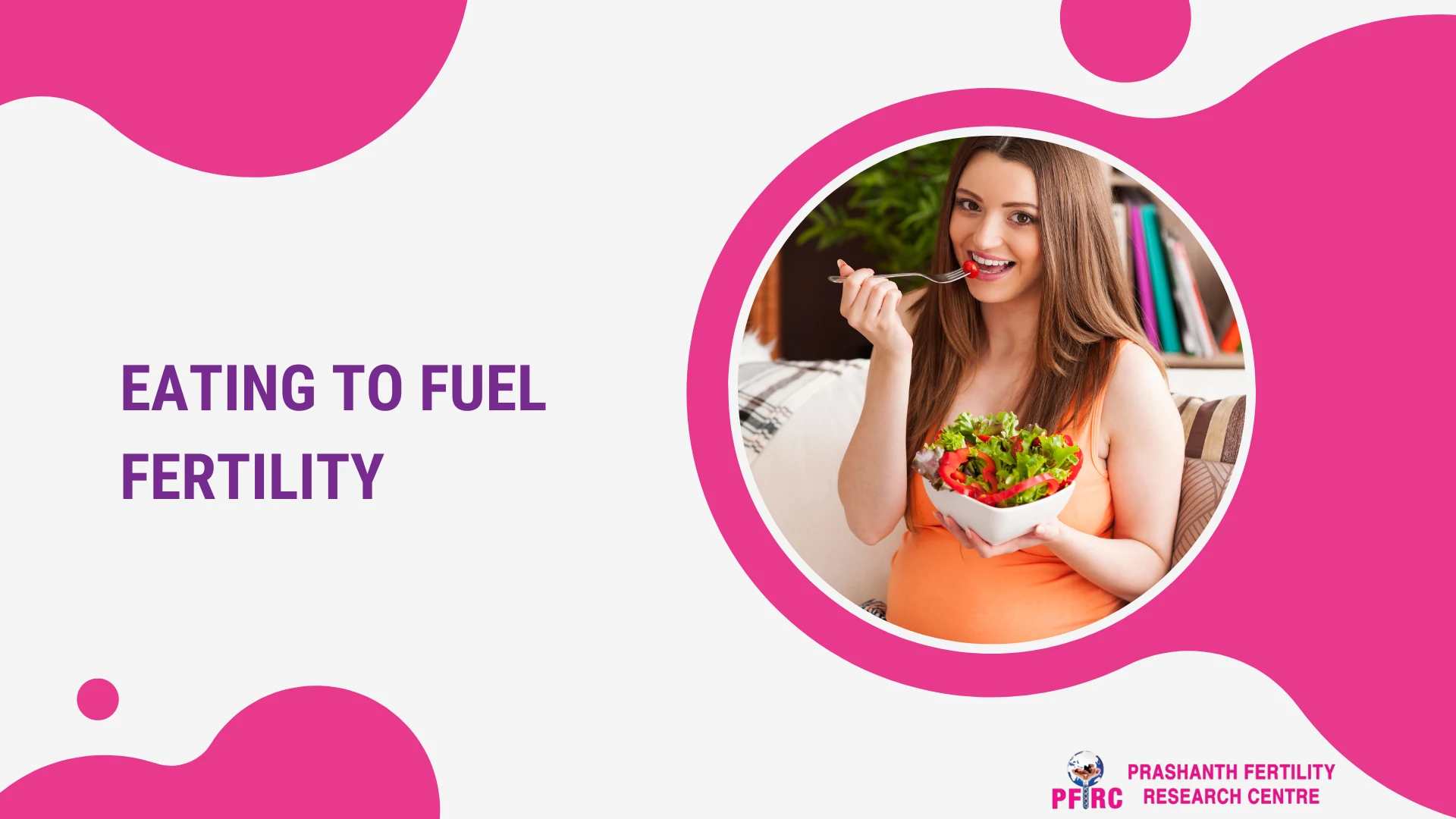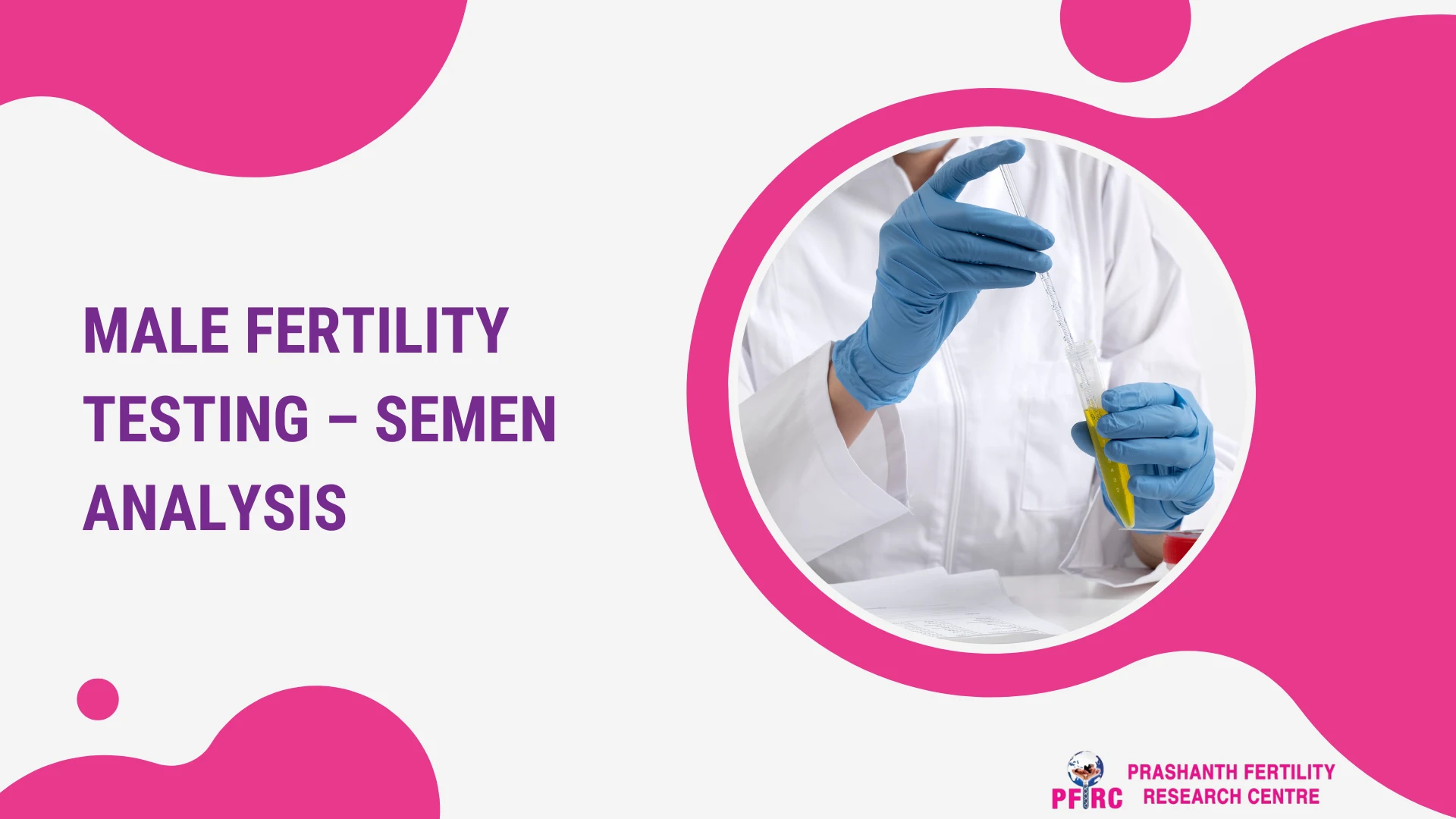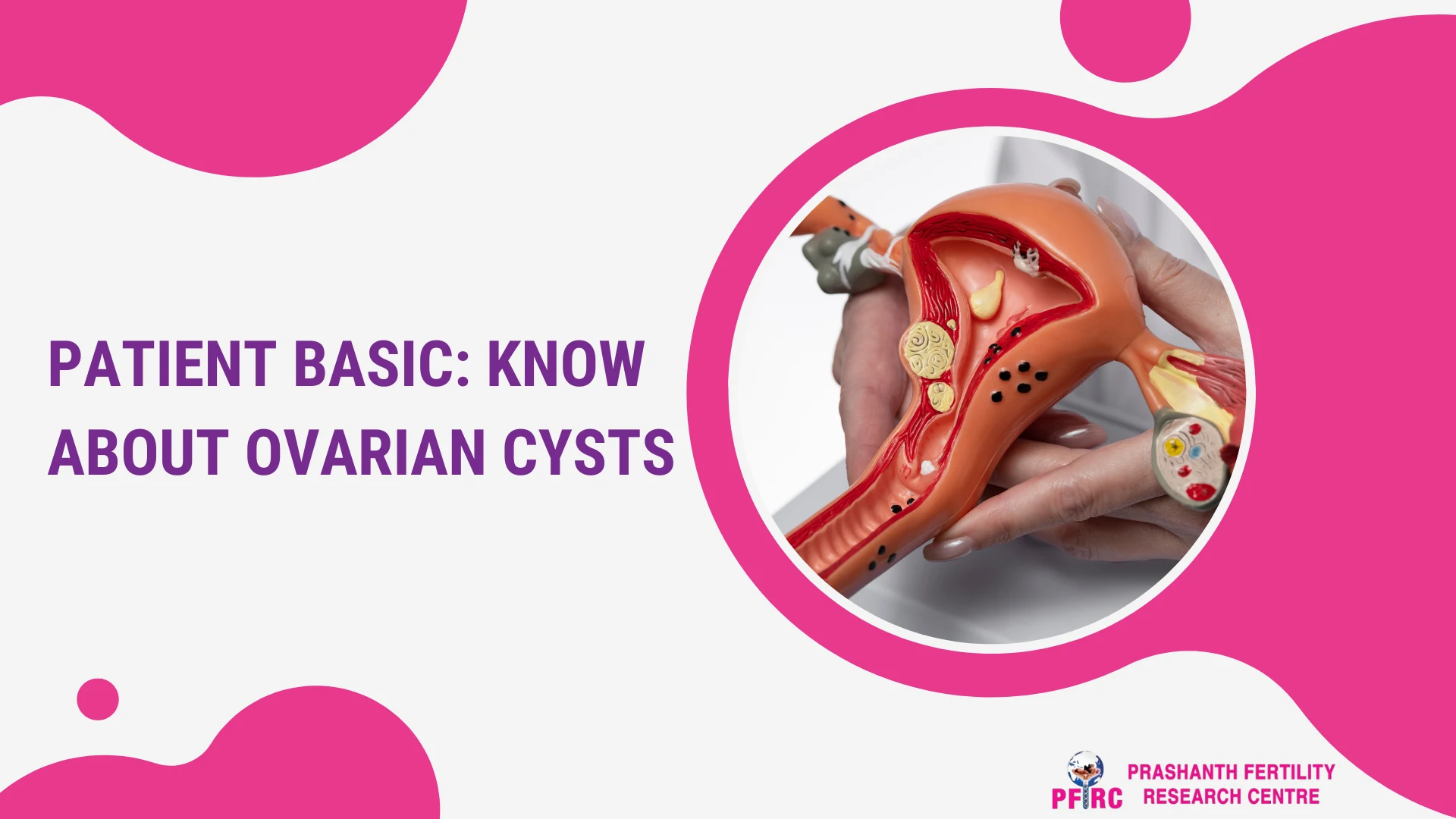Egg rupture refers to ovulation, the process in which the mature follicle in the ovary releases the egg qualified for fertilization.
If the egg travels to the uterus through the fallopian tube and meets the sperm, conception takes place leading to embryo development.
If the meeting of the egg and sperm does not take place, there is no possibility of pregnancy. The meeting of the egg with the sperm is called fertilization and it is crucial for conception.
Many factors hinder fertilization and cause failure of conception. Addressing these factors will help you conceive successfully and unlock your dream of parenthood.
Factors Hindering Conception After Egg Rupture
Suppose you are tracking your ovulation regularly and find out that you are not getting pregnant after at least six months of unprotected intercourse around the ovulation phase. In that case, the following factors may be the possible culprits preventing you from conceiving:
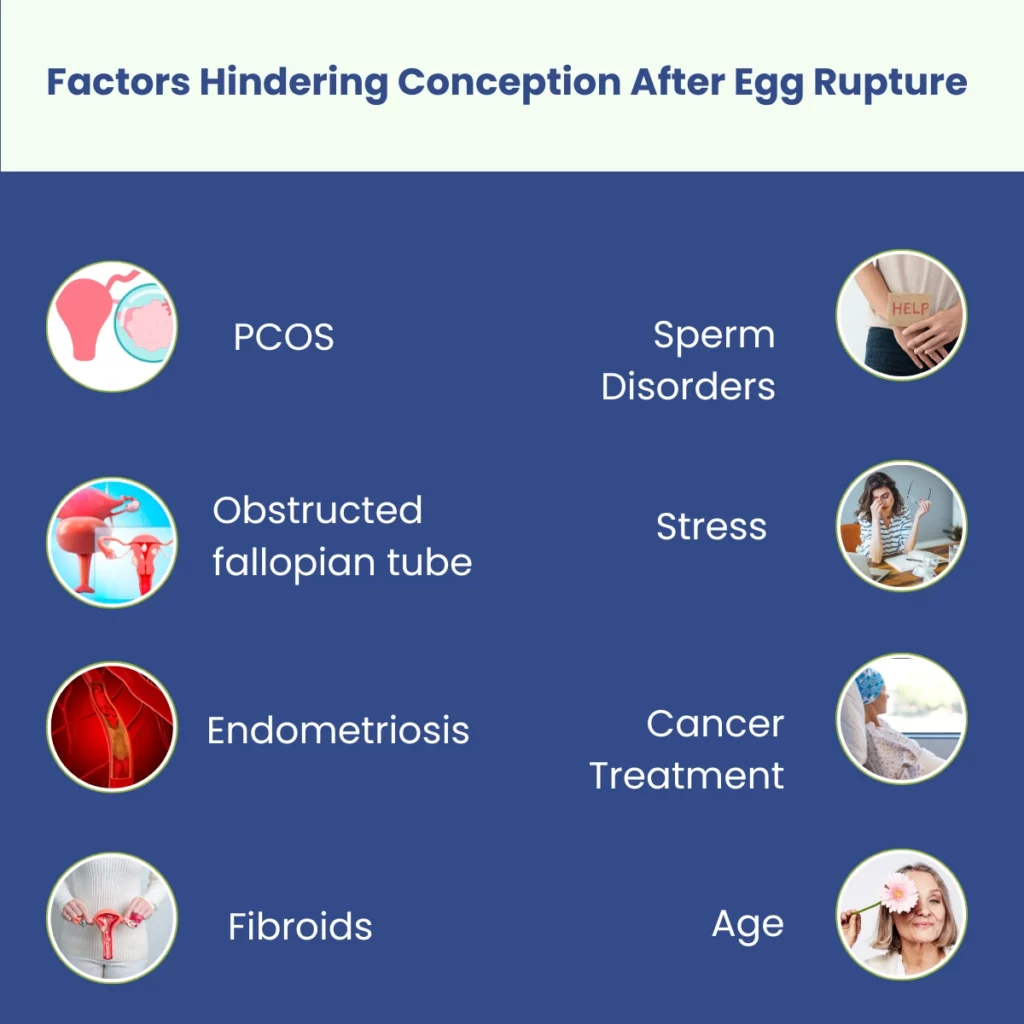
PCOS
Polycystic Ovarian Syndrome causes irregular menstrual cycles that can disturb your ovulation and affect fertility.
There are no concrete pieces of evidence found against the cause of PCOS. but lifestyle and dietary modifications can mitigate the effect of PCOS and enhance fertility.
Obstructed Fallopian Tube
When the path of the fallopian tube gets blocked or obstructed it becomes difficult for the sperm to reach the egg. This results in infertility.
Abnormal Uterine Shape
The shape of the uterus is important in supporting the fertilization process. An irregular uterine shape may make it difficult for the fertilized egg to implant in the uterine wall. This can lead to the failure of pregnancy.
Endometriosis
Endometriosis involves abnormal growth of the uterine tissues in places other than the uterus. Removal of these tissues can cause scarring of the fallopian tube leading to infertility.
Endometriosis also prevents the embryo from implanting on the uterine lining.
Fibroids
The presence of fibroids in the uterine cavity may take up the space for the fertilized egg to implant and can even disturb the fertilization process.
Sperm Disorders
Defective sperms with low motility, irregular size and shape, and DNA fragmentation can lead to failure of fertilization. Low quality and quantity sperm fail to qualify for healthy sperm required for successful fertilization.
Cancer Treatment
The therapies and surgeries such as chemotherapy, radiation therapy, hormone therapy, and so on, undertaken for previous cancer history can have a serious impact on fertility.
Stress
Stress distorts the hormone balance leading to poor reproductive health. Stress also affects overall physical health which can lead to failure of conception.
Age
Fertility health decreases with an increase in age especially in women. Also, the quantity and quality of eggs decrease with age causing fertilization failure.
Factors Hindering Conception After Egg Rupture in IVF / IUI
If you have adopted Assisted Reproductive Techniques (ART) like Intrauterine Insemination (IUI) or In Vitro Fertilization (IVF) to achieve pregnancy, the following factors may affect the fertilization process.
- Failure of the egg to survive after fertilization in the laboratory.
- The frozen sperm head may not have decondensed which could lead to failed fertilization.
- The failure to activate eggs to participate in the fertilization process.
Should I Wait for a Pregnancy Check?
Typically, you take a pregnancy test 10 to 14 days after the ovulation phase or the embryo transfer process.
If you received a negative pregnancy result after the two-week wait and have not received your period yet, you can wait for a few more days, around 5 or 7 days, and go for another pregnancy test. If the scenario persists, visit a fertility doctor to resolve the situation.
It is advisable to visit a clinic to take a proper pregnancy test to prevent false positive or negative results.
What if the Situation Continues?
Consult a fertility specialist and report the history of your menstrual cycle. Track the timing of your ovulation and period and take into account your physical health issues as well.
Based on whether your period is delayed or missing you will be prescribed measures to enhance your fertility and await positive pregnancy results.
If your period is missing, you can wait for a few more days and take another pregnancy test.
If your period is delayed, it is a fertility issue and you must have to visit a gynecologist to have it sorted out.
You can also adopt Assisted Reproductive Techniques (ART) like Intrauterine Insemination (IUI) or In Vitro Fertilization (IVF) to achieve your pregnancy dream as well.
How Many Cycles of IUI or IVF Are Required to Attain Pregnancy?
Normally, three to six cycles are prescribed for IUI. In the case of IUI failure, IVF treatment is suggested.
IUI or IVF can be taken up for any number of times based on your doctor’s advice and your willingness.
The advantage of ART techniques is that your fertility level increases with each cycle even when the treatment does not result in pregnancy.
Conclusion
Trying for pregnancy may not be a walk in the park for many couples. Yet, you do not have to be worried about any obstacles you face in your journey toward pregnancy.
Modern fertility techniques like IUI, ICSI, and IVF can make your dream of having a child come true at minimal costs and no serious complications.
To know more about fertility treatments that will help address your concerns about reproductive health, consult a fertility specialist.
FAQs
IVF is a widely employed fertility technique to achieve pregnancy in today’s world. People with severe fertility complications can adopt IVF.
IVF begins with follicle stimulation to produce many eggs, followed by egg retrieval, fertilization, and embryo transfer. This treatment includes hormone medications and procedures that require no incisions.
Yes, endometriosis can hinder the fertilization process, scar the fallopian tube, inflame the pelvis, and influence in other harmful ways affecting fertility.

